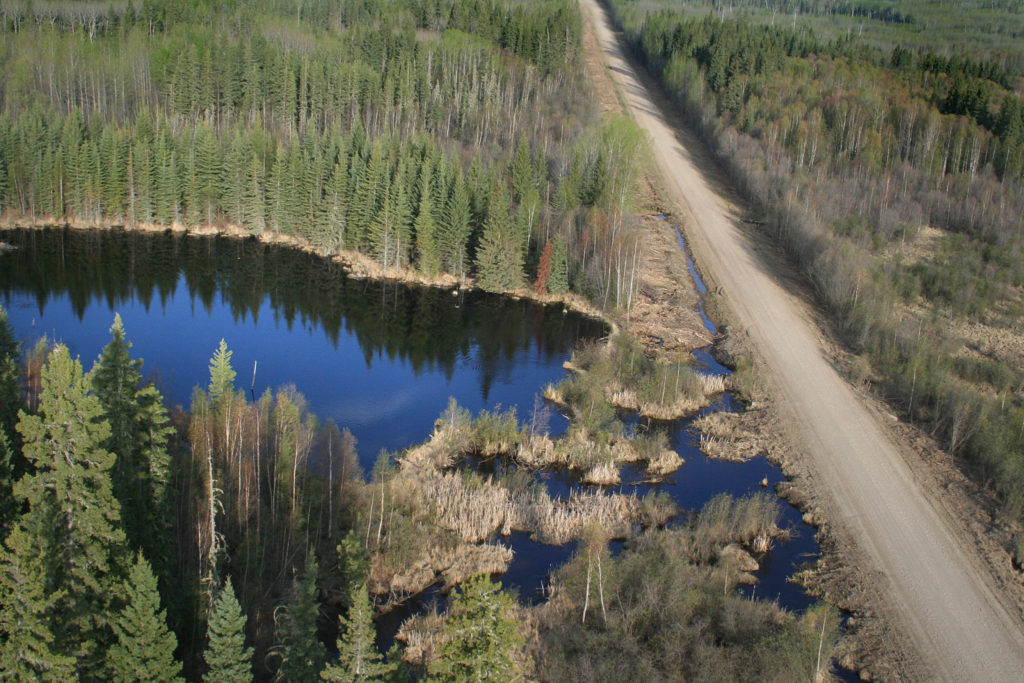Waterfowl nest success in the Western Boreal Forest: Does industrial development alter predation rates?
About the Study
This study will determine how duck nest success changes as the density of linear features (roads, pipelines, and seismic lines) increases. We assume that as the human footprint increasingly fragments the forest, duck breeding success declines because predators gain greater access to nesting habitat and/or the predator community shifts to include more duck nest predators. The net result is assumed to be lower adult female and nest survival, meaning as the forest becomes more fragmented, the duck population will decline.
The study will take place in north central Alberta in the Utikuma lake region.

Timelines
The study is led by Matt Dyson, a PhD student from the University of Waterloo. We had a pilot field season in 2016 and anticipate full field seasons in 2017 and 2018. Analyses and writing are expected to be completed in 2019.
Goals & Purpose
This project will strengthen the science that drives DUC’s boreal conservation work. It will help ensure that conservation programs are focused on the most important threats to boreal waterfowl habitat and addressing them with the most appropriate conservation actions.


